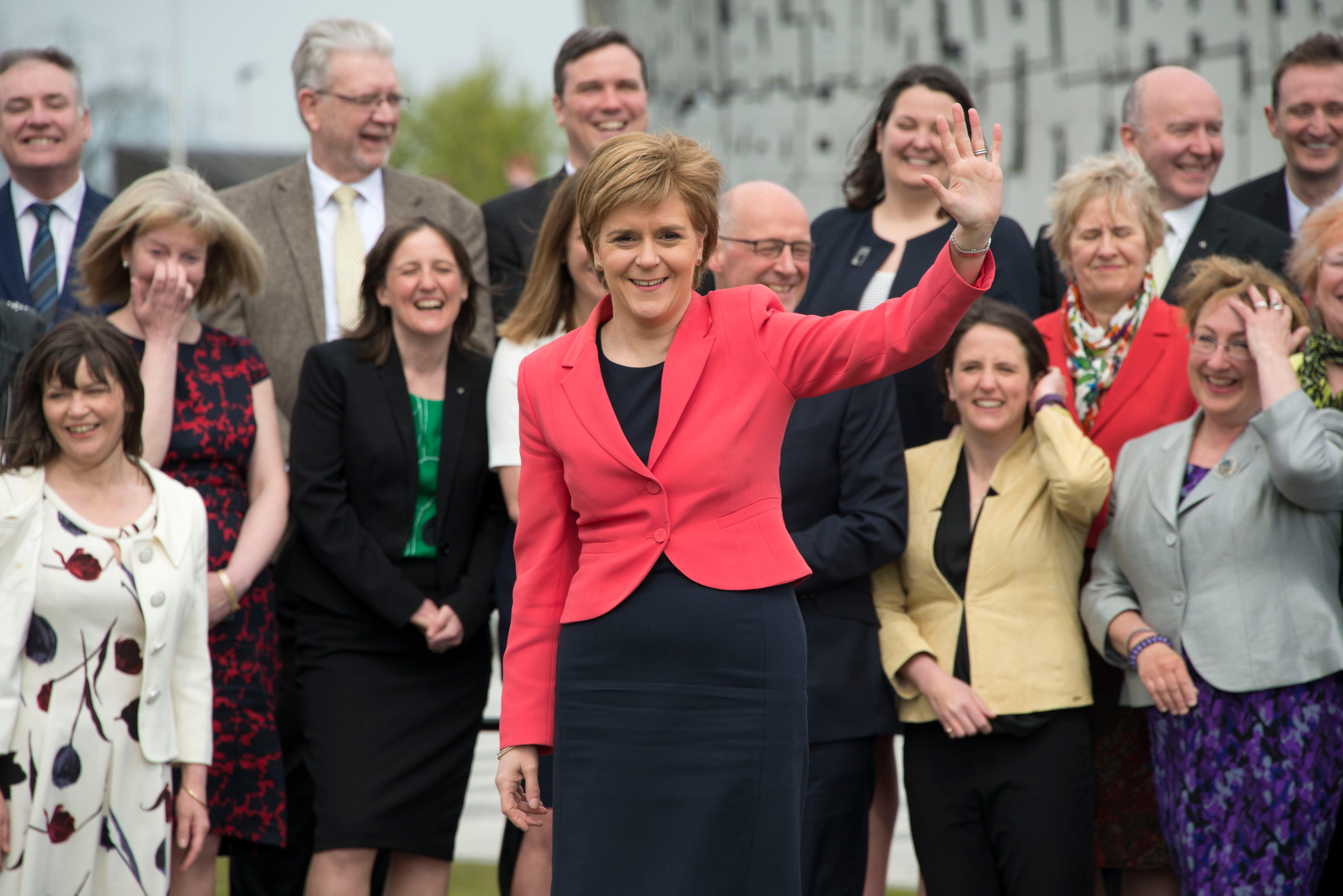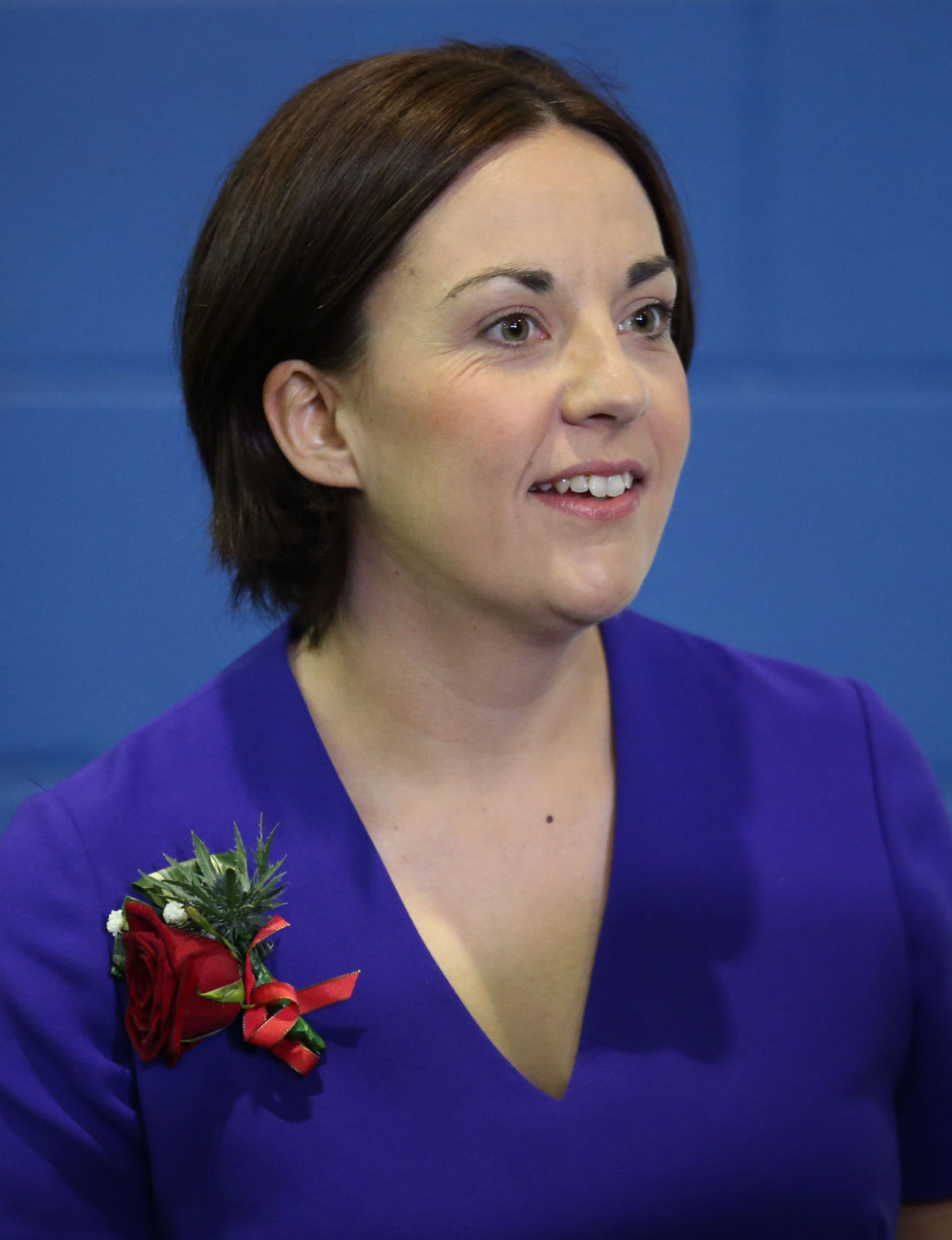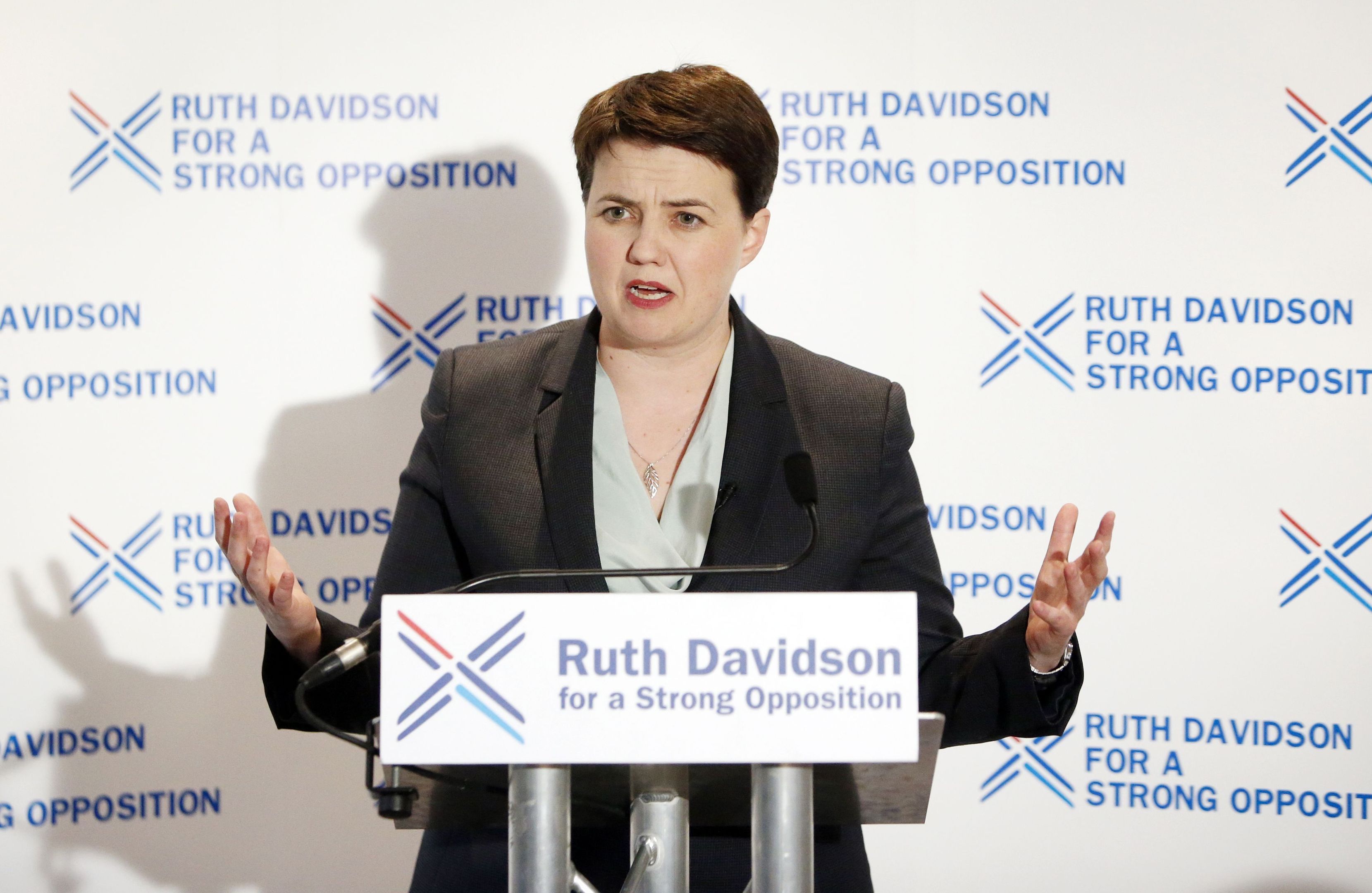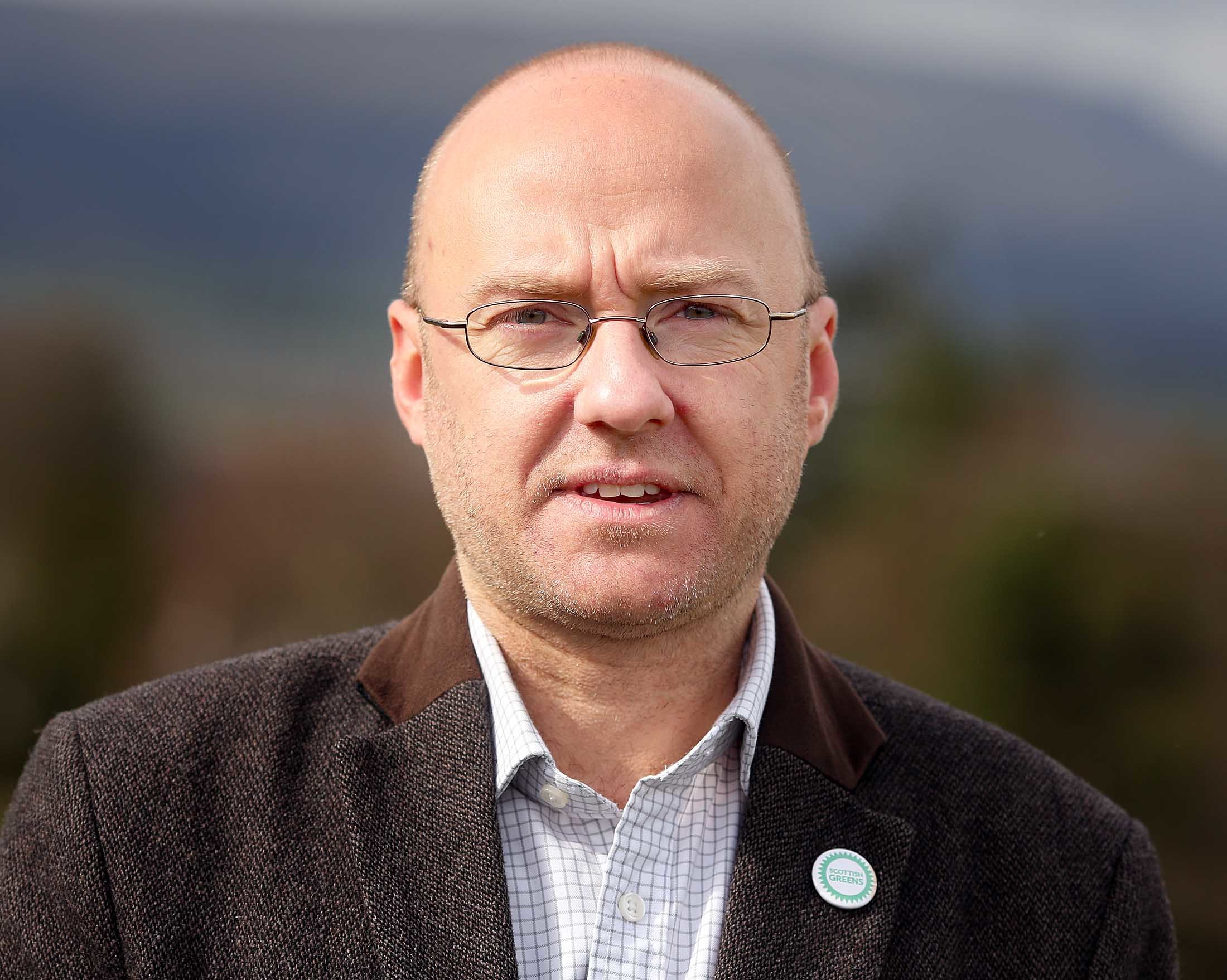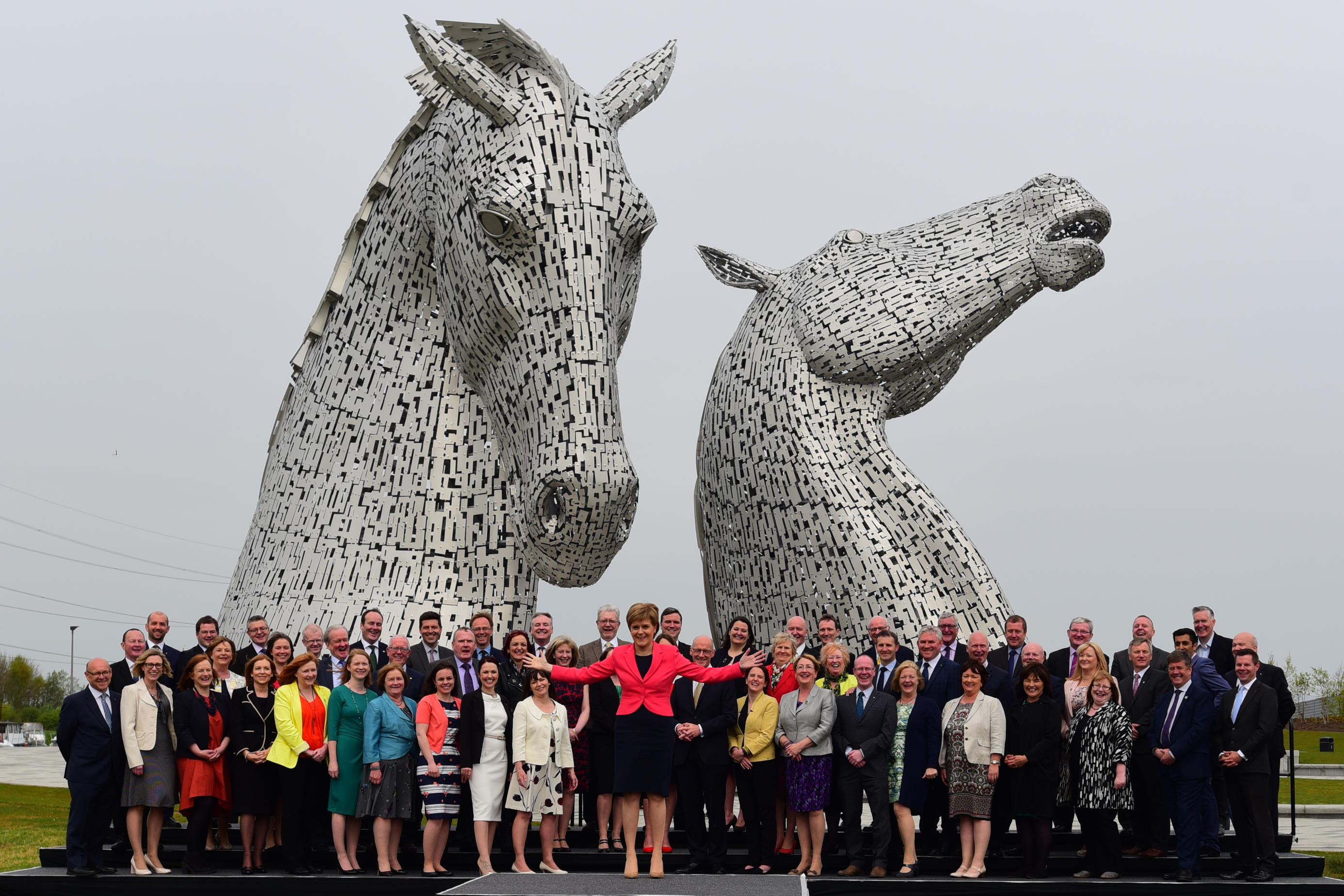
As Nicola Sturgeon was parading her new team at the Kelpies, Ruth Davidson, Patrick Harvie and Kezia Dugdale were planning their strategies for the new term.
Cheaper family holidays and a controversial crackdown on football fans are likely to be the first casualties of life at Holyrood without a majority for the SNP.
Despite increasing its share of the constituency vote beyond the one million mark, the SNP have fallen just short of the majority of MSPs they needed to ensure all of their ideas make it through the Scottish Parliament over the next five years.
But what does this mean in practice?
Despite the mudslinging and brickbats thrown during the election campaign, the main political parties agree on more issues than they disagree – well almost.
Sweeping reforms to the education system, including a revolution in the amount of free childcare available to families, have the broad support of most, so will happen.
Similarly, a variety of election pledges to increase spending on the NHS over the next five years will also survive what are likely to be tough negotiations around budget time.
On the issue of independence, despite the lack of an SNP majority there is still a pro-Yes Holyrood majority with the six Green MSPs joining the 63 from the SNP.
But there will be high-profile hits for Nationalist policies as a result of the new dynamic at Holyrood.
The SNP have long campaigned for a 50% cut in Air Passenger Duty when Holyrood takes control of the tax in 2018.
The party’s plan to cut the hated “tourism tax” could save families hundreds of pounds on the cost of a holiday and bring in an estimated one million passengers to the country every year with airlines such as easyJet promising a raft of new routes if the tax was cut.
However, the Greens, Lib Dems, Labour and Tories were against the 50% cut in their Holyrood manifestos so, as things stand, the policy has no chance of being approved by Holyrood.
The development has alarmed the industry to such an extent that last night an Edinburgh Airport spokesman called for the tourist industry to mount a fresh campaign to persuade the opposition parties to change their stance.
Elsewhere, one of the first acts of newly elected Labour MSP James Kelly will be to draft up a Private Members Bill to repeal controversial legislation aimed at tackling sectarianism.
The law passed in the wake of violence at an Old Firm match criminalised offensive and threatening behaviour, including sectarian behaviour, related to football matches and any communications containing threats or incitement to religious hatred.
Police chiefs have praised the crackdown but it’s opposed by every opposition party in Holyrood and last year was even described by a Dundee sheriff as “mince”.
Speaking to The Sunday Post last month, Justice Secretary Michael Matheson said there was “no chance” of the SNP dropping the law or even revisiting it.
However, the parliamentary arithmetic now means Mr Kelly’s Bill to repeal the offensive behaviour laws is likely to pass, albeit narrowly.
Expect the Scottish Government to find a way to “pause and reflect” on the legislation before the Bill gets off the ground.
Tax will be one of the big battlegrounds in the coming years.
While the SNP are quite far apart from the Greens and Labour on what to do with Holyrood’s new income tax powers, they’re remarkably close to the Tories.
There is a similar situation when it comes to council tax, where both the Tories and SNP advocate tinkering with the existing bands, while the Greens and Labour want more radical changes.
Politically, relying on the Tories to get these plans in place is tricky for the SNP, not least because the party spent the last three years monstering Labour for their Better Together alliance with the Conservatives.
This means the Nationalists may need to give ground elsewhere with Green co-convenor Patrick Harvie already suggesting that imposing increased taxes on higher earners will be the price of
Scottish Green support for SNP spending plans.
An even bigger price to extract for the Greens would be a ban on the controversial unconventional gas extraction – or fracking as it’s more commonly known.
The last SNP Government put the issue out to pasture with a long-winded public consultation on the safety and environmental impact of the new energy source.
This was bolstered by a temporary ban on fracking with ministers saying they would decide later this year on a total ban.
The Greens could be persuaded to back the SNP on a number of fronts if they got reassurance of a total fracking ban which, given Nicola Sturgeon has already said she’s sceptical of fracking, would not be a huge leap for the Nationalists.
Despite the excitement of the Tories and the Greens about their new place in the Scottish political food chain, it is important not to overstate how much the SNP will need to compromise over the next five years.
READ MORE
Scottish Elections: 10 surprises from Thursday’s vote
Scottish Elections 2016: SNP win but without enough votes for a majority government

Enjoy the convenience of having The Sunday Post delivered as a digital ePaper straight to your smartphone, tablet or computer.
Subscribe for only £5.49 a month and enjoy all the benefits of the printed paper as a digital replica.
Subscribe